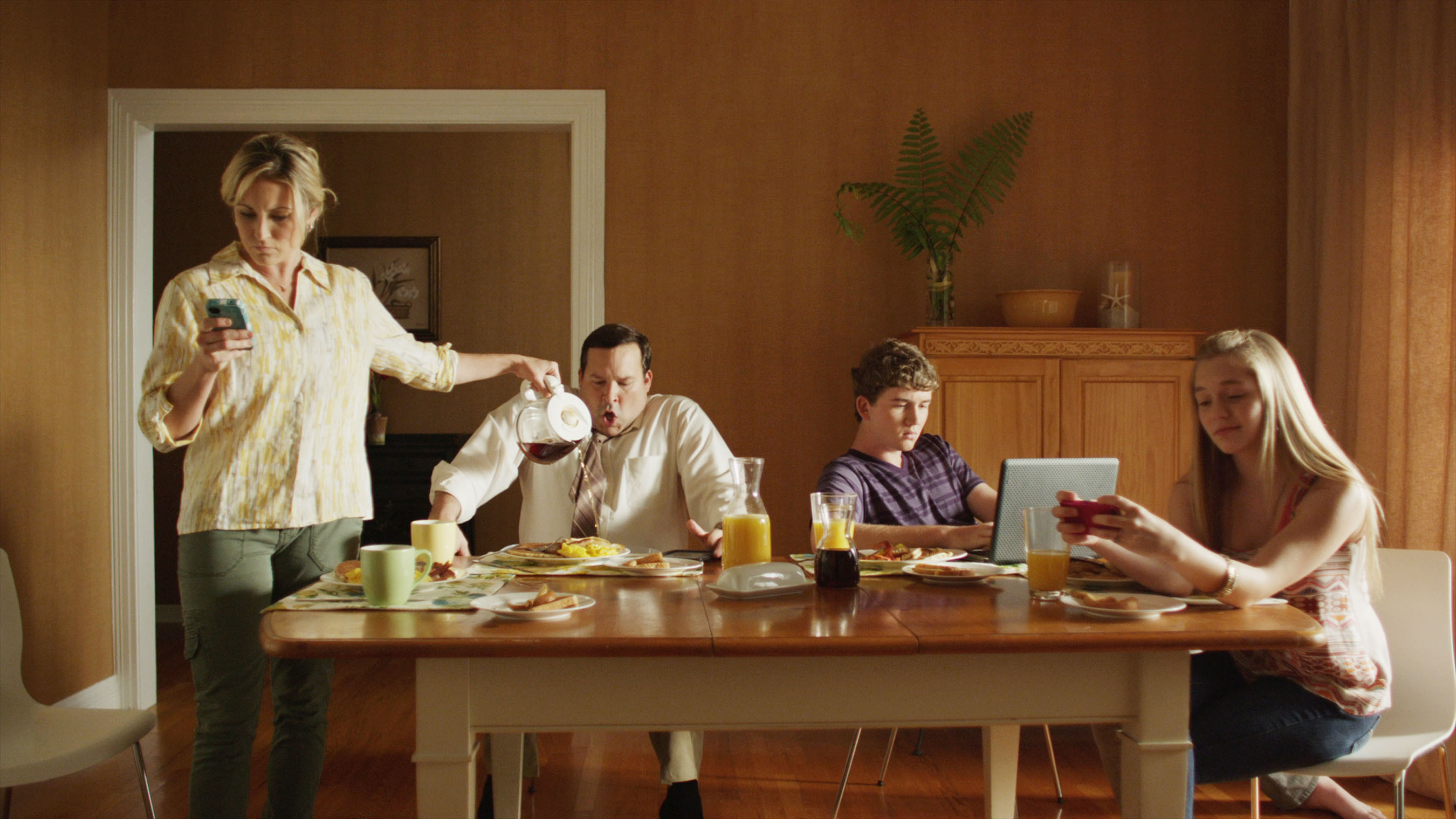Sitting in a loaded stadium watching the Dirk's Dallas Mavs play LeBron's Cleveland Cavs-awesome! Lots of energy and "celebrity" watching
I have been watching pro sports for a while now and have never made the Big Screen. Well, last night I MADE IT. Well...sort of. Look closely. I am in the grey pull over appearing right above the head of the young man reaching for the camera. The man next to me, their dad and great friend of mine, snapped the picture you see below.

As you can see, the seats and camera crew where way up there. Certainly a cool pic and great memory from a great game. The moment came and it was gone. Even though I coaxed the guys to try different things to attract the cameras attention (I could not help myself-I may or may not have challenged them to take their shirts off and wave them), the moment was over.
The event drew my attention towards the Big Screen for the rest of the night as I watched what people would do and how they would do it to get their seconds of fame. Here is what I learned from my people-watching extravaganza.
People want to be seen. My favorite screen moments where created by people who did not realize they where on screen. The person next to them nudged them into looking up to the screen. Then the magic happened. Smiles, dancing (sometimes innapropriate), kisses, hugging and overall this is my moment behavior. Really, people do crazy things to be seen.
Seen people bring energy. When the game went into OT (again, great game) the camera caught one young Mav Fan who in turn grabbed the attention of the entire American Airlines Arena. The camera gave him much more than 5 seconds. They used his passion to amp up the entire place. He pumped his hands, beat his chest and begin to yell at the top of his lungs-the crowd responded. The kid who was seen changed the energy of the entire arena. I am certain that this young fan felt directly connected to and impacting a truly great sports moment.
Zacchaeus.
Nathanael.
The "Blind Man."
The woman "at the Well."
The woman with "the Issue of Blood."
The man with "a Legion of Demons."
Are a short list of people in the Gospel Story who wanted to be seen, where seen by Jesus and changed the energy of entire crowds.
Let's remember that our students (and those we engage with every day in the stores, coffee shops, gyms and places we frequent) desperately want to be seen. That's why some do crazy things to stand out. They want to feel a part of something bigger than themselves. They want to be noticed.
As youth workers, we spend a lot of time being seen by those we are ministering to and with. If you want to change the energy in your student ministry, start by focussing on the answer that is right before your eyes-the students and adult volunteers the Lord has placed before you.
Place the Big Screen attention you posses as a leader on them and watch the energy rise in them and your ministry.
Oh, your first notion may be to focus on the "franchised" students and adults. They are easier and give you more in return right? Wrong. My advice, don't ignore those, but focus on students and adults who rarely get the Big Screen shot. That's what Jesus did and it worked out pretty good.
Here is a closing observation. One of the celebrities we watched (through the binoculars) was Mark Cuban. It was cool to watch his passion for his team and game. Even so, the one who stole the show and brought the energy to the Arena?
That young Mav fan-Just sayin'! Seen People Bring Energy!




